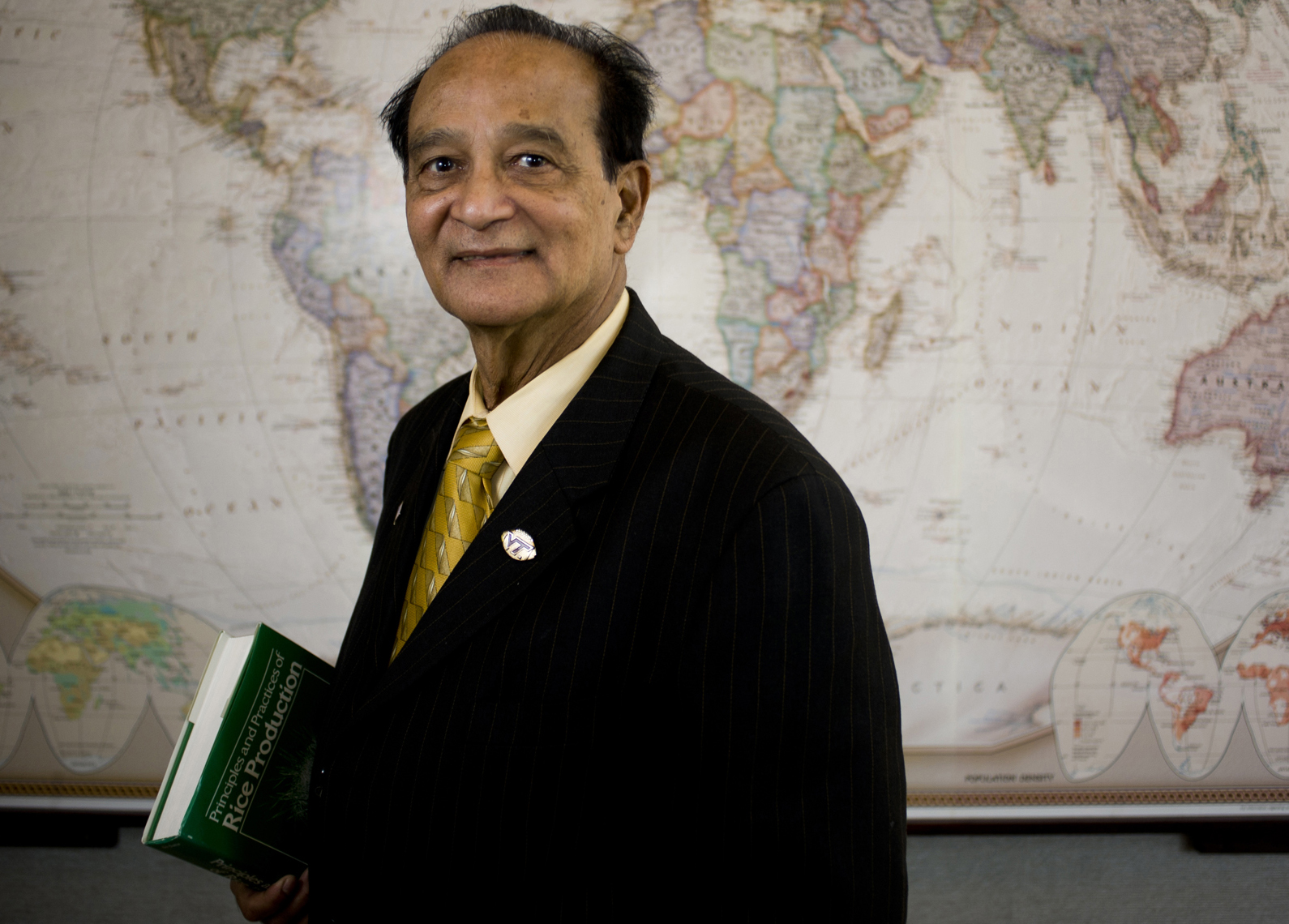S.K. De Datta honored with emeritus status

S.K. De Datta, former associate vice president for international affairs and director of the Office of International Research, Education, and Development, has been conferred the “professor emeritus” title by the Virginia Tech Board of Visitors.
The title of emeritus is conferred on retired full professors and associate professors, administrative officers, extra-collegiate faculty with continued appointment, and senior Virginia Cooperative Extension agents who are specially recommended to the board of visitors by Virginia Tech President Charles W. Steger. Nominated individuals who are approved by the board of visitors receive an emeritus certificate from the university.
A member of the Virginia Tech community since 1991, De Datta has served Virginia Tech in a variety of roles, including director of the Office of International Development, professor of crop and soil environmental sciences, associate dean of the College of Agriculture and Life Sciences, and associate vice president for international affairs.
Under his guidance, the Office of International Research, Education, and Development became one of the largest international program offices in the United States, with a presence in 44 countries and a current research portfolio of more than $90 million and a cumulative portfolio of $150 million.
De Datta has been a professor, a researcher, and a leader in the Green Revolution of the late 1960s. It was his research on a high-yielding variety of rice that was a key part of the agricultural movement that benefited millions of people in Asia. His comprehensive book about rice, “Principles and Practices of Rice Production,” is viewed by many experts as the authoritative opus on rice.
De Datta has served on the degree committees of 77 master’s and doctoral students who have gone on to achieve prominence around the world as leaders at major universities and international agriculture centers, as well as ministers of agriculture. He has won more than 30 international awards.
Dedicated to its motto, Ut Prosim (That I May Serve), Virginia Tech takes a hands-on, engaging approach to education, preparing scholars to be leaders in their fields and communities. As the commonwealth’s most comprehensive university and its leading research institution, Virginia Tech offers 240 undergraduate and graduate degree programs to more than 31,000 students and manages a research portfolio of $513 million. The university fulfills its land-grant mission of transforming knowledge to practice through technological leadership and by fueling economic growth and job creation locally, regionally, and across Virginia.




